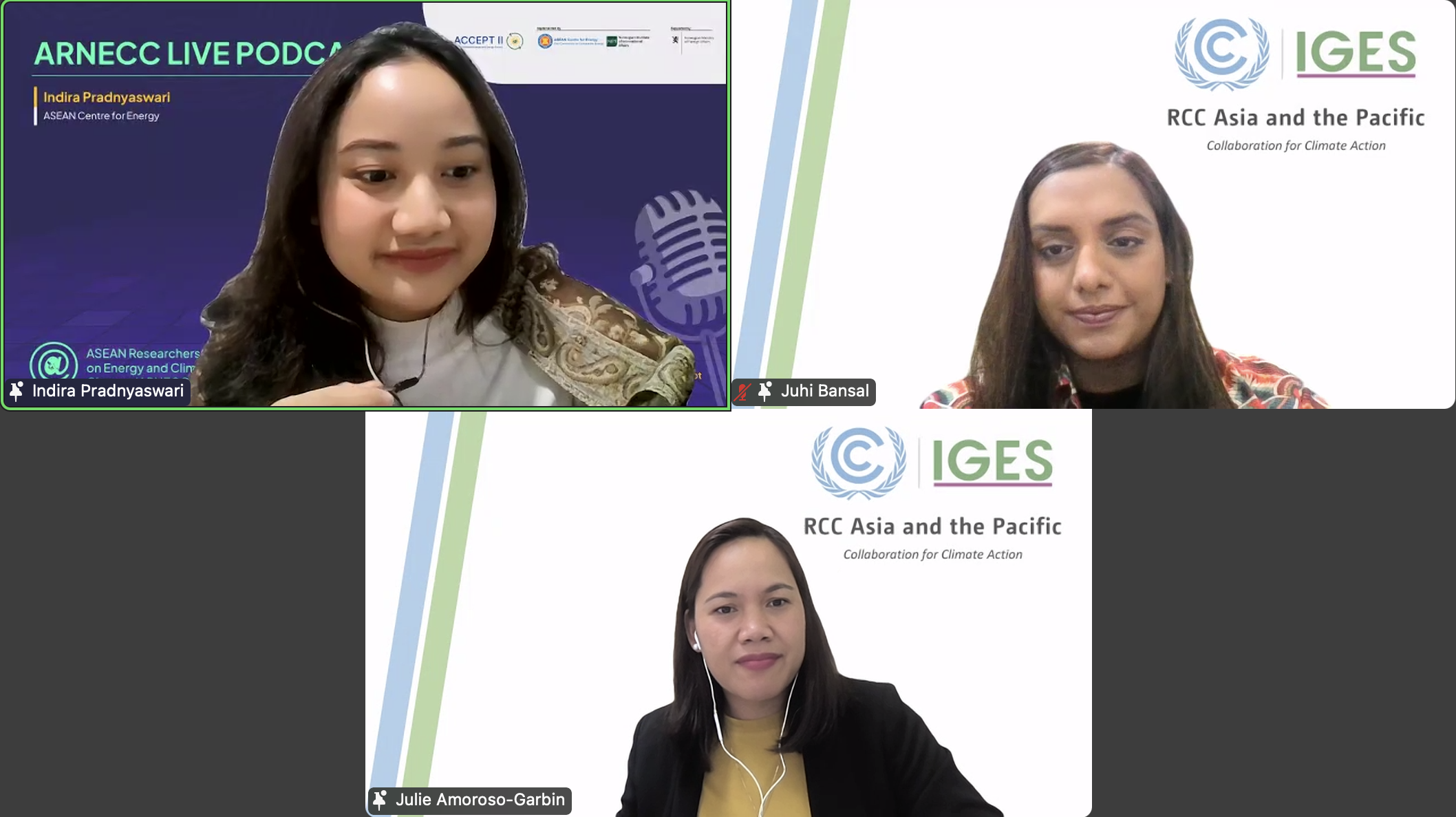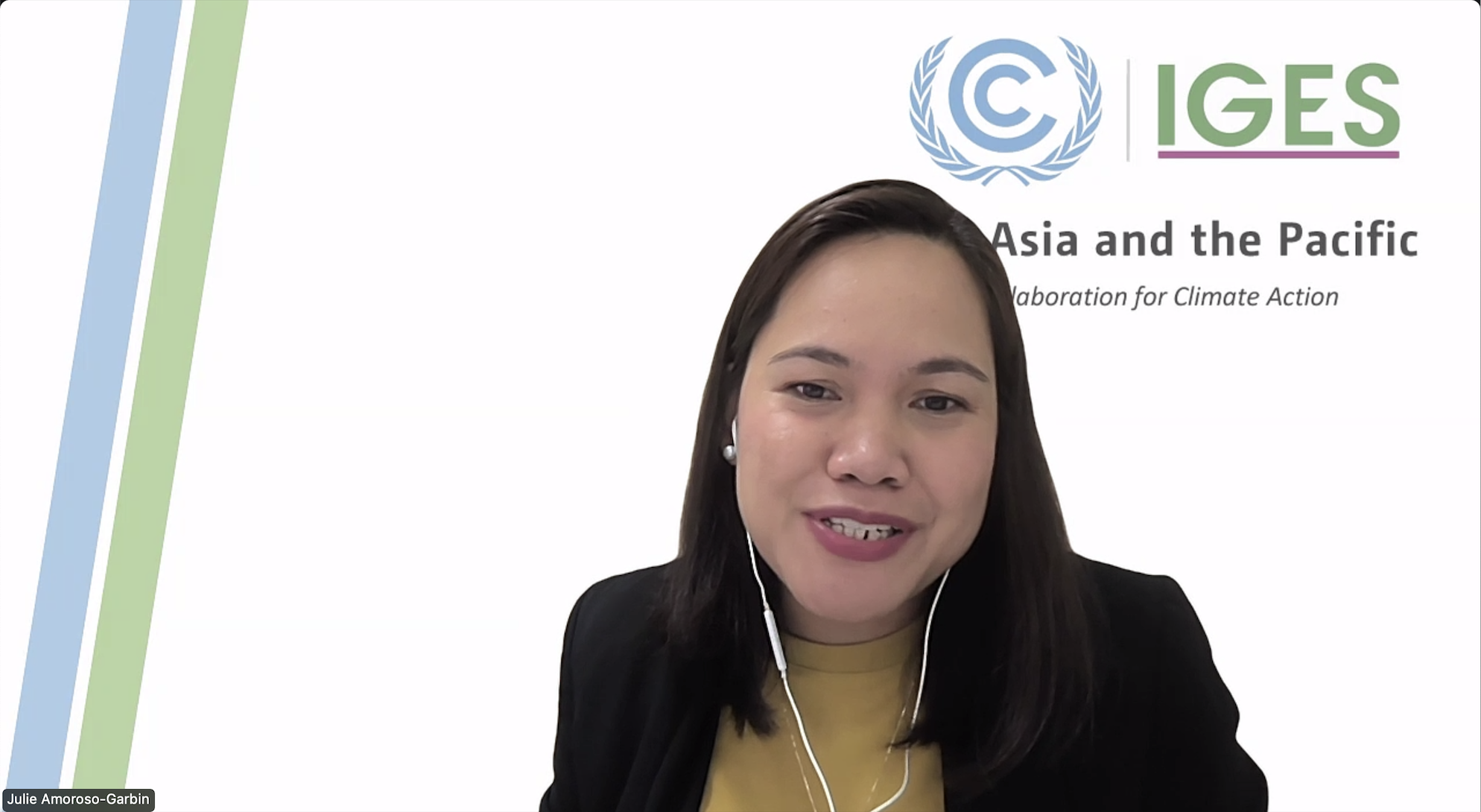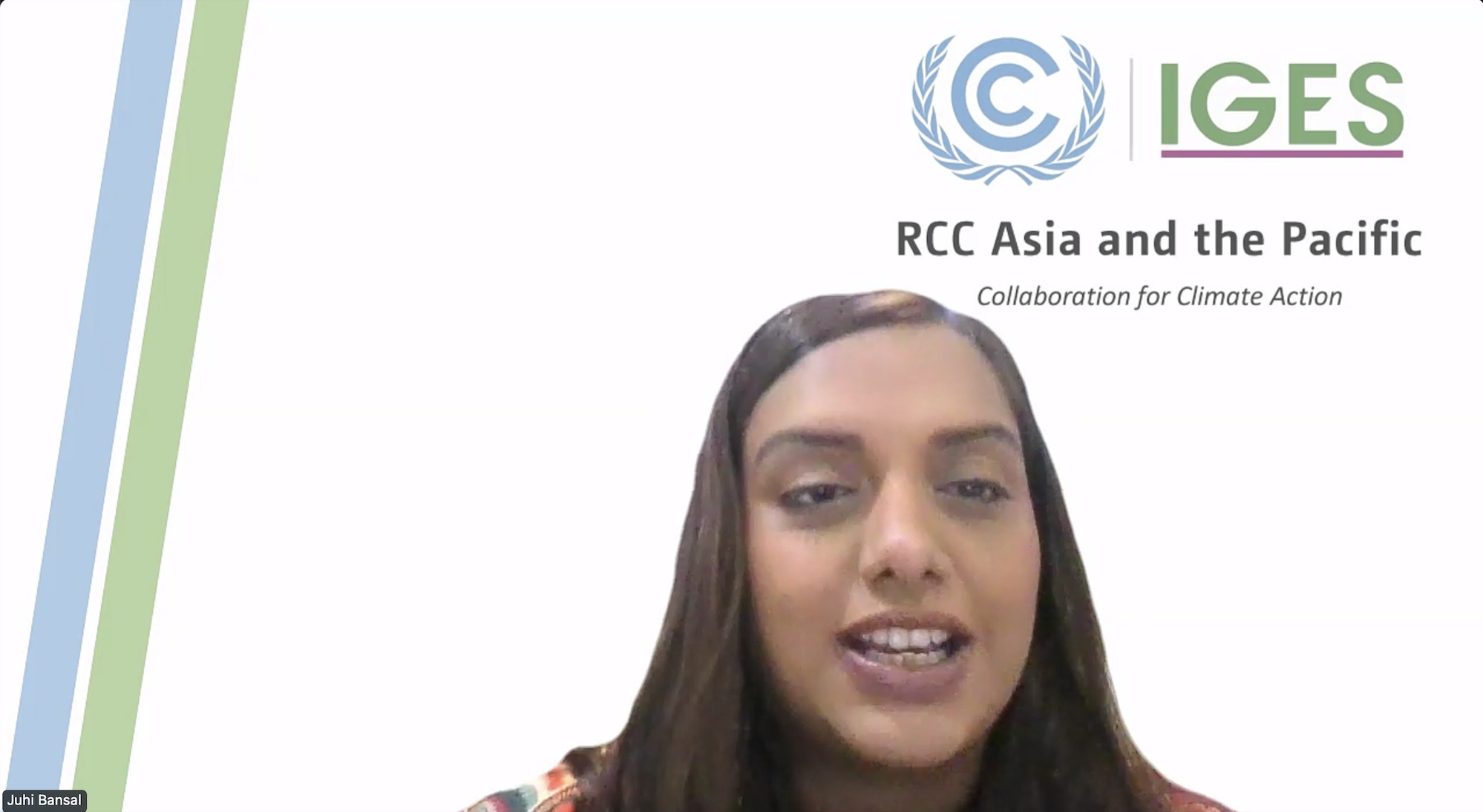Jakarta, 26 June 2025

Photo 1. Ms. Indira Pradnyaswari from the ASEAN Centre for Energy along with Ms. Juhi Bansal and Ms. Julie Amoroso-Garbin from the UNFCCC at the first ARNECC Live Podcast
On Thursday, 26 June 2025, the ASEAN Climate Change and Energy Project (ACCEPT) organised the first episode of the ASEAN Research Network on Energy and Climate Change (ARNECC) Live Podcast—NDC Series. With the title “NDC 101 – A UNFCCC Perspective,” it was premiered through a collaboration with the United Nations Framework Convention on Climate Change (UNFCCC) RCC Asia-Pacific. Aligning with the submission of the Nationally Determined Contributions (NDCs) 3.0 this year, Ms. Julie Amoroso-Garbin, Regional Lead of UNFCCC Regional Collaboration Centre (RCC) Asia-Pacific, and Ms. Juhi Bansal, NDC and LT-LEDS Specialist of UNFCCC RCC Asia-Pacific, shared their perspectives on the UNFCCC’s perspective on the NDC. Hosted by Ms. Indira Pradnyaswari, Research Analyst of ACCEPT, the podcast began with a brief history of the UNFCCC and its relevancies toward international climate cooperations. As of now, 198 parties have ratified the Convention, which includes 197 countries and the European Union.

Photo 2. Ms. Julie Amoroso-Garbin explaining the roles of the UNFCCC.
In the beginning, Ms. Julie highlighted the UNFCCC’s role as a central facilitator in supporting international climate discourse under the Paris Agreement. This includes negotiations through the annual Conference of the Parties (COP) and other subsidiary body meetings, tracking and supporting implementation processes, financing schemes, and transparency systems. To coordinate with the Parties, the UNFCCC has a structured, inclusive system of governing bodies, subsidiary bodies, dedicated expert groups, and mandated reporting instruments. Ms. Julie also added that the Secretariat is not a policy-making body, but the facilitator, convener, and custodian of the international climate process.

Photo 3. Ms. Juhi Bansal explaining the importance of the Nationally Determined Contributions (NDCs)
In addition, Ms Juhi Bansal shared her insights regarding the regional overview of NDC submissions. The Paris Agreement, adopted in 2015, has to date been signed and ratified by ASEAN Member States. The Paris Agreement is established and aim to limit global warming to well below 2°C (and pursue 1.5°C), strengthen resilience to climate impacts, and align financial flows with low-emissions, climate-resilient development. This is where the NDC plays a pivotal role due to its aim to achieving climate goals, serving as the central document for countries to translate global ambition into national action. The NDC includes how the country plans to reduce greenhouse gas (GHG) emissions, how it will adapt to the impacts of climate change, and what support it may need or provide in terms of implementation. Following the “ratchet mechanism,” countries must submit updated NDCs every five years, each more ambitious than the last, and participate in the Global Stocktake to assess collective progress. On regional view within ASEAN, only Singapore has submitted the NDC 3.0 as of date. Their progress is evident in NDC submission cycles, sectoral expansion, and increased integration of long-term climate goals.
The discussion also emphasised that the upcoming climate cooperation agenda will place greater focus on gender equality, youth engagement, and just transition principles. This is also stakeholder engagement with regional institution such as the ASEAN Centre for Energy is required – as its aligned with the endorsed theme of the ASEAN Energy Blueprint or ASEAN Plan of Action for Energy Cooperation (APAEC) themed ‘Advancing Regional Cooperation in Ensuring Energy Security and Accelerating Decarbonisation for a Just and Inclusive Energy Transition’. In this case, to advance multistakeholder collaboration for net-zero, the UNFCCC Secretariat — through the UNFCCC RCC Asia-Pacific — act as a strong connector between regional governments and diverse actors, including civil society, youth, indigenous peoples, the private sector, financial institutions, and subnational bodies.

Photo 4. Ms. Julie Amoroso-Garbin and Ms. Juhi Bansal
Furthermore, Ms. Julie highlighted that impactful climate actions hinge on whole-of-society engagement, rather than only government leadership. In practice, this means facilitating regular multi-actor dialogues, joint capacity-building with relevant partners, sharing up-to-date data and regional insights, and offering targeted technical support upon request — such as NDC adjustment clinics or in-country Article 6 trainings. Through this approach, the RCC can strengthen trust, inclusivity, and ambition. Translating global climate commitments into concrete, inclusive, and regionally tailored action towards net-zero, ensuring no one is left behind.
The discussion highlights keyways forward for ASEAN, including clearer targets, broader sector coverage, stronger financing plans, and transparent tracking, all aligned with long-term net-zero goals. This means using updated data, addressing overlooked areas like land use and coastal resilience, and linking local action with national plans. Most importantly, it calls for practical collaboration—governments providing direction, academia supplying evidence, civil society monitoring progress, and youth driving fresh ideas—to ensure climate action is realistic, accountable, and benefits everyone.
This episode offers valuable insights into NDCs—how essential it is for effective climate action and how the UNFCCC, as a facilitator for global climate governance, guides the Parties to a more climate resilient future. Watch the full episode now available on our Youtube channel. This conversation offers valuable context for ASEAN stakeholders seeking to further align regional actions with international climate commitments.
**
(NA, LL, HEPR)
Join our ASEAN Researchers Network on Climate Change (ARNECC) by registering yourself here. Become a part of our collaborative efforts to address pressing climate challenges and shape a sustainable future.
Detailed information on ACCEPT II can be found at https://accept.aseanenergy.org/
Follow our social media to stay updated on ASEAN’s energy-climate nexus and ACCEPT activities.